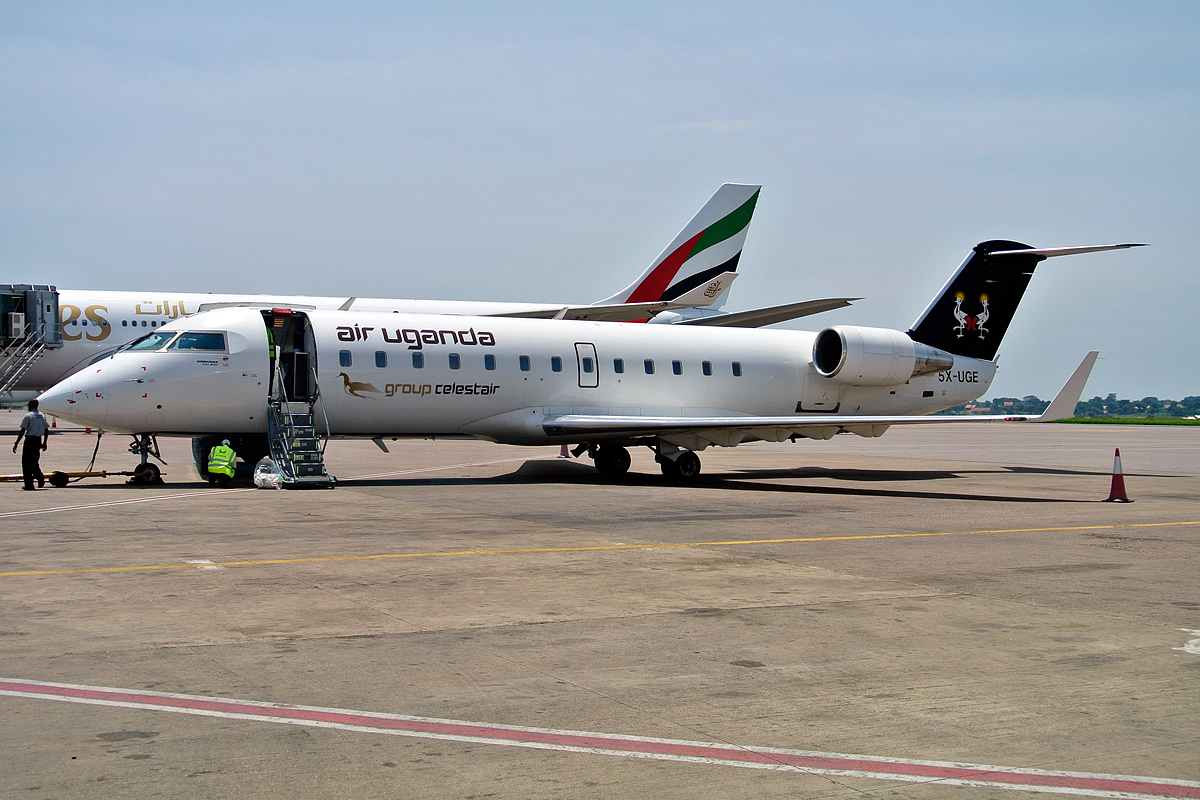It’s not clear just how much was risked by passengers flying on the now grounded Air Uganda. Its even possible we shall never know. Passenger safety has not made it past the concern for jobs and profitability that have so far dominated the conversation about Air Uganda. There is a pattern in Uganda and other African countries where domestic regulators are weaker than the constituencies they regulate. It is that story of how the civil service is so perforated by patronage, bribery and a loss of mission therefore, that it would be irrational to expect regulators to perform as expected. In other words, assume the worst. Thus when Air Uganda was asked to ground its operations that’s precisely what I did. Assume in this case the very worst.
Since then some of my fears have been aided by whispers at Entebbe. One journalist (who is yet to write the story) told me there is documentation of no less than 19 serious incidents on the record of Air Uganda. [ a good story on this can be found here}
A more trusted source put the situation like this “ ICAO [the International Civil Aviation Organisation) gave the government two choices. Ground Air Uganda (and Uganda Air Cargo) or we shut down Entebbe Airport”. That’s deadly serious, don’t you think? It had the finality of those Expiry Date stamps in the medicine cabinet. Little of this however has trickled to the public debate. Maybe it’s understandable. Few people fly and when disasters happen, however tragic few die in comparison to the say war and disease.
Aviation is one of those industries that depend almost entirely on guaranteeing freedom from error (I once flew Precision Air to Dare salaam all the way thinking how wrong the name was for all the mishaps on the way). So I find the way a country runs can be deduced from the way its airports and aviation ports run. The more efficient, the more serious the country and vice versa. It’s probably a blessing that whatever safety concerns regulators had have not come to life (no pun intended).
The airline denies it put passengers at risk and CAA has refused to state publicly the nature of the infractions, which caused Air Uganda’s license to be withdrawn.
The public debate on safety however has not been encouraging. In parliament, politicians from both sides of the aisle shot down the Works Minister, named Abraham Byandala, when he attempted to educate the House on the safety issues at the heart of the withdrawal of Air Uganda’s license.
Not even the recent flood of terrible news from the global aviation industry or Uganda’s own record has caused pause over the tension between people and profits. Not long ago several Ugandan military helicopters enroute to Somalia crashed in nearby Kenya what was widely concluded as an avoidable tragedy occasioned by poor decision-making at the Uganda Peoples’ Defense Air Force. The official report is unlikely to see the light of day but talk around this embarrassment is that the army focused its attention not on processes but rather on strategy. Its not very clear what the CAA had to do with it or what their relationship is with army aviation operations.
No proper inquiry or public debate followed. Not even on behalf of the servicemen and their families who bore the brunt of the tragedy. The other day a rather bizarre incident occupied the newspapers and TV stations. An American aircraft made an emergency landing on a public road “ because it had run out of fuel”. Luckily no crash, but once again there was little debate about public safety and the role of CAA. Locals have made the plane a tourist attraction trooping to have their pictures taken. Several TV stories focused on how the plane was affecting the neighborhood, creating opportunities for one woman’s food businesses and scaring away customers of the traditional healer whose shack was been shunned as if the plane and its modernity had a transcendental effect on the ancient charms of Mityana.
There is something dark and uncomfortable about Uganda’s attempts to “be like the rest” and paint the sky with its black, red and blue national colors. Politicians and civil servants in the wake of Air Uganda fiasco (not to be confused with Uganda Airlines) have revived this fiction that Uganda needs once again a thriving national carrier. There is nothing wrong with this ambition. But the last decade has shown Uganda’s regulatory environment is a major stumbling block.
In 2007 I investigated at some length the banning of Das Air Cargo, then the most important transporter of Uganda’s fresh fruit to Europe. There had been allegations that the company was too close to CAA and was basically given a pass on standard regulations but they were never proven. However international regulators caught up with one of the company’s DC 10’s at Gatwick during a routine check. The result was that the airline was banned from European airspace collapsing the business. At the time, it seemed prudent for the government to acquire the company’s liabilities and invest in new planes (some talking heads dreamed of Uganda being a cargo hub and still do). They did not. It’s not clear if CAA was ever overhauled after what was clearly a crisis at the institution. Its like, I told a friend, the equivalent of DAS purchasing those HIV- free certificates.
A similar path is being followed here with Air Uganda maybe.
Cecilia Ogwal, the Opposition Whip, whose political career spans almost four decades, hunkered to the past this week suggesting once again that Uganda needed to revive its national airline. The Uganda Development Bank if it had the resources apparently would like to buy a majority stake in the airline, parliament was told. In his statement on the airlines website, C.E.O Cornell Muleya put the blame on CAA and sought to distinguish the audit of the regulator from the safety record of Air Uganda itself. This logic goes something like this; that your health is no reflection of the medical board’s issues with your doctor’s practicing certificate.
In arriving at this, Muleya cites IATA standards the airline passed (a two-year evaluation). In other words the regulator CAA is incompetent but the airline it supervises is not. This is not implausible but suggests an even worse situation. If we can’t trust CAA, who else can we trust? The government needs to address this question and the public interest more urgently than national pride in a carrier with Uganda’s colors. We don’t need another air tragedy to debate how competent CAA must be. What we need most is re-assurance that CAA can do its job.










